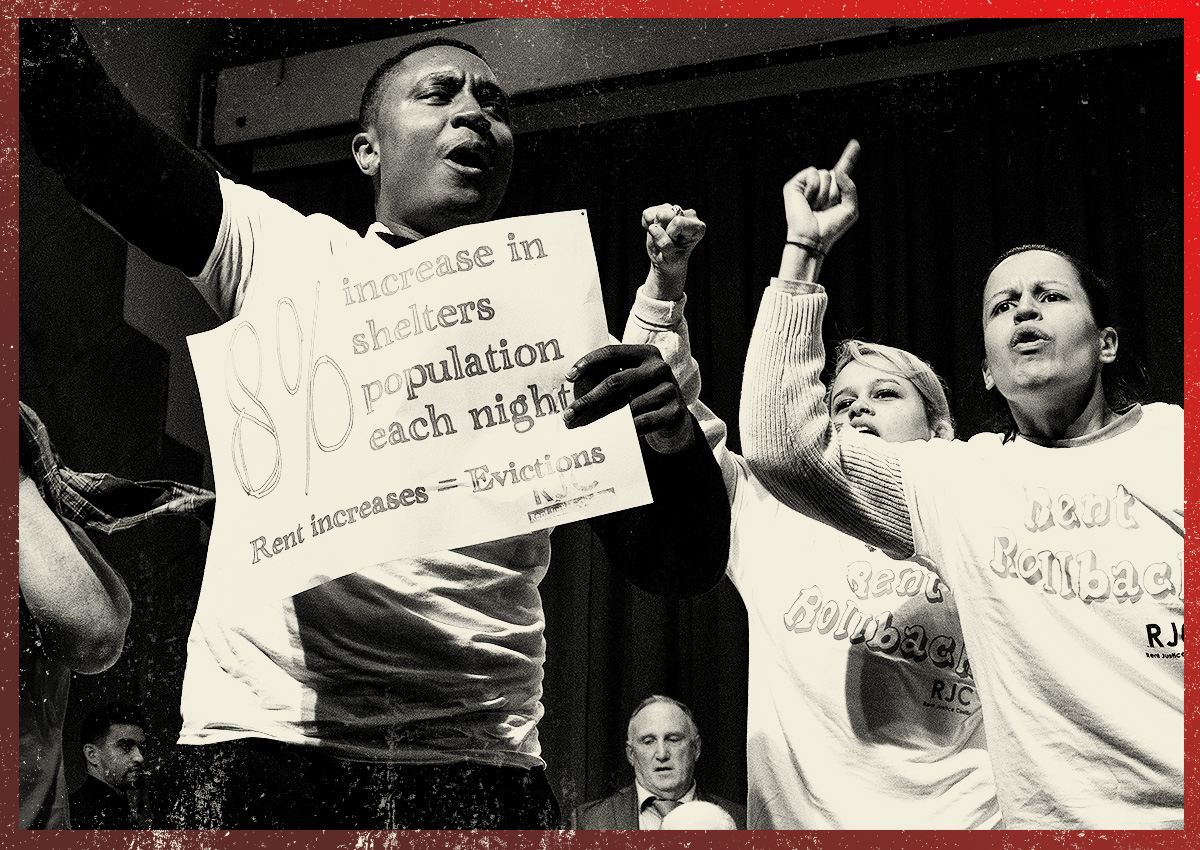There’s a vacant, one-bedroom apartment in Morningside Heights that would make a nice home for a struggling New Yorker, or a young artist, or someone just out of prison who needs a fresh start: The legal rent is only $684 a month.
“Bless day,” Shakema Smith wrote when she saw the unit on Twitter. “Is it available for rent?”
Nobody replied.
Perhaps no one wanted to deliver the bad news: It is not available, because it is not up to code. And perhaps never will be.
The unit is among tens of thousands trapped in a backwater of the 2019 rent law, which created new problems as it solved old ones. By limiting to $15,000 (over 15 years) the amount landlords can recover from tenants to pay for upgrades, the law kept rents down but also removed from the market apartments like the one Shakema Smith wanted.
The Upper Manhattan unit needs about $95,000 worth of work to be rentable, but the landlord can only raise the rent by $89 a month. It would take 90 years for that increase to pay for the renovations, so the apartment sits empty. What good is a bargain if no one can get it?
To fix this problem, which affects 30,000 or 40,000 rentals in New York City, the landlord group Community Housing Improvement Program last year proposed that landlords be allowed a one-time rent hike to whatever amount they wanted, after which the incremental increases allowed by rent stabilization would resume.
The proposal was a non-starter: This state legislature would never give landlords carte blanche to jack up regulated rents. So CHIP asked Democrats to come up with something that could actually pass in the pro-tenant Assembly and Senate.
Sen. Leroy Comrie of Queens and Assembly member Kenny Burgos of the Bronx did just that. In their bill, the one-time rent increase would be determined by a similar process — but stricter and more transparent — than the one used when rent-controlled units become rent-stabilized. That process is not controversial and has been state law for 50 years.
Landlords could not use it for every vacancy. Instead, the bill would apply to units like the one Shakema Smith coveted: those needing extensive repairs after long tenancies ended. And the new rent would be based on comparable rent-stabilized units, not market-rate ones.
Who could possibly object to that? Believe it or not, the tenant advocacy movement did. The advocates immediately began spreading false information about the bill and chased away half a dozen of its sponsors.
They convinced a Hellgate reporter that it “would have a cataclysmic effect on the millions of New Yorkers living in rent-stabilized housing.” In reality, it affects none of them, because it applies only to apartments left vacant after a long tenancy. The bill affects people looking for rent-stabilized apartments — people like Shakema Smith.
One of Hellgate’s sources, Legal Aid’s Ellen Davidson, perhaps auditioning for a job on Tucker Carlson’s new show, came up with this whopper: “This is about ending rent regulation for half of regulated households.”
The bill wouldn’t deregulate a single unit. Rather, it would add thousands of rentable units to the rent-stabilized housing stock.
The legislation’s biggest flaw, from a policy perspective, is that it’s not nearly flexible enough to rescue all mothballed units. For example, unlike the law governing rent-controlled units being moved into rent stabilization, it requires landlords to remove nearly every molecule of lead, rather than just make the apartment safe. In most cases, that demands a gut renovation.
Also, as noted, the new rents will be on par with other rent-stabilized units. In many cases, that might not be enough to justify a renovation. Would it make sense to spend $100,000 to collect $1,350 a month rent? A good number of landlords would not bother.
CHIP is well aware of the bill’s limitations. But it also recognizes the limitations of New York politics. Legislators are afraid to vote for anything — even a bill that puts vacant units back on the market and keeps them affordable — that could be portrayed as rolling back the 2019 rent law.
Read more



That’s why the bill was written with so many pro-tenant provisions, so even the most zealous backers of the 2019 law would accept or even embrace it. But they have shown themselves to be incapable of that.
So, no, Shakema, the one-bedroom is not available at any price. Good luck with your apartment search.
